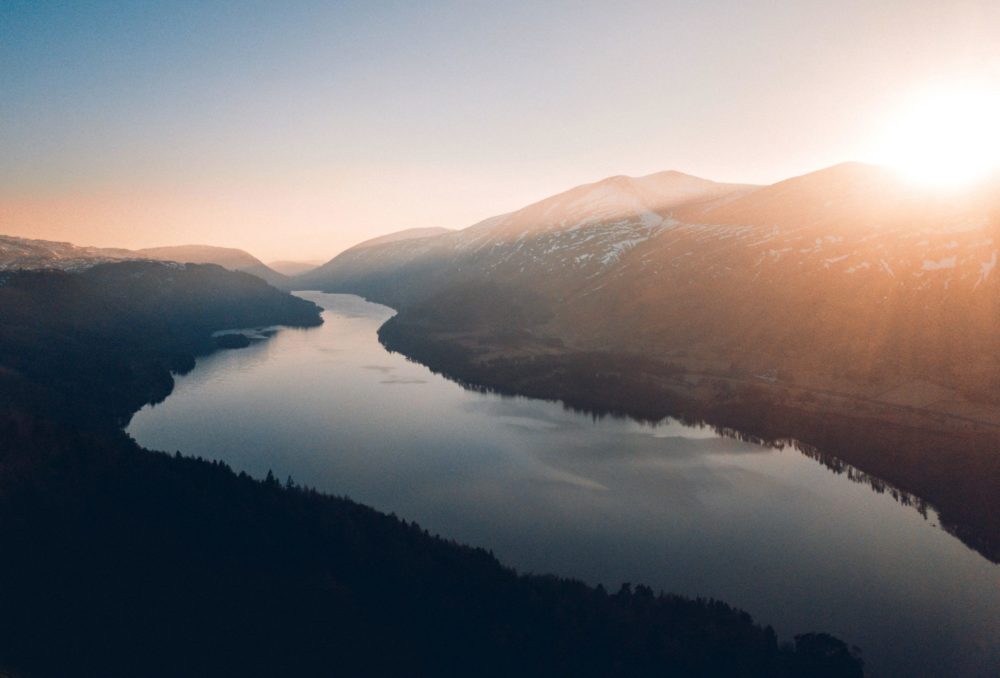
The theme of World Water Day 2024 is “Water and Peace”. UN Water stresses that: “Water can create peace or spark conflict” and goes on to elaborate that “When water is scarce or polluted, or when people have unequal, or no access, tensions can rise between communities and countries. By cooperating on water, we can balance everyone’s water needs and help stabilize the world.”
But, what does it take to “cooperate on water”? What are the conditions that determine whether water will be a catalyst for conflict or peace?
GWP-Med, REXUS Communication & Dissemination leader, explains the 3 ‘steps’ that are key to turning water into an opportunity for collaboration rather than conflict, and how REXUS is addressing them.

1. Escape short-termism.
“We need water now”, regardless of what this means for tomorrow and the day after. Short-termism can lead communities and countries to ignore negative impacts in the rush to ensure preferential access to water today. But, taking a longer-term view, that takes into account broader challenges like climate change, reveals that what may seem advantageous for one community or one sector today, may have dire consequences for them tomorrow. For example, in many places the agricultural sector has experienced first hand what over-exploitation of water resources can do over time.
This reveals a great misconception regarding water’s potential as a driver of conflict: very often water rights do not really pit one community, sector or country against another; in reality, they pit the present against the future. Being able to take the longer view, through science and modeling tools that take uncertainty into account, can drive the point home that ‘mega-challenges’ like climate change require joint solutions; and that usually, ‘securing’ one’s position in a situation of broader insecurity, really offers no security at all.

2. Value water (and its hidden interconnections!)
The more ‘stripped-down’ one’s view of water, seeing it strictly as a necessary input to agriculture, industry or for drinking, the more likely they will engage in win/lose competition with others. To overcome this, the challenge is to uncover what is normally hidden, ignored, or just not measured and therefore not a factor in calculations and negotiations. Identifying win-win solutions requires that communities and countries be able to value on water and all its related functions, including sustaining ecosystems in the long-term. These may include, for example, the value of protecting tourist services and other alternative uses.
Recognizing this value can lead to a joint vision of water across divisions, where the end value is greater than the sum of the parts; rather than a stripped-down version where one party is trying to grab what the other is lacking.

3. Ask the people involved.
The final step to building sustainable win-win solutions is to listen to all stakeholders involved, as early on as possible. Viewpoints will differ greatly, and this is necessary to construct a shared reality which reflects the multi-dimensional value of water. Contrasting viewpoints about water will often not only be encountered between communities or countries, but within them, between different economic sectors, or users and managers.
The more proactively contrasting viewpoints are addressed, the more productively they can be reconciled, preventing them from degenerating into ‘black-or-white’ decisions that favour one group at the expense of another, while not at all addressing the real threats to long-term sustainability. Mobilising stakeholders early enough towards a joint vision that can make space for different needs is at the core of sound water management.
So, what is H2020 REXUS doing?
REXUS is working across all these 3 pillars to help turn water into a catalyst for peace and productive collaboration:
1. Mapping complexity & uncertainty
REXUS is offering all five pilots tools that can help map uncertainty, and address common factors such as climate change in their entire system. For example, System Dynamics Modeling, can help stakeholders understand how Water-Energy-Food-Ecosystems systems change over time in response to regulatory or other changes, helping stakeholders proactively address uncertainty and plan ahead, selecting one ‘scenario’ over another. The choices they make today will determine whether in the future a more sustainable outcome will be developed for all, or whether one group will be pitted against another in a win/lose situation.
2. Putting a price on hidden values
A lot of work is going into mapping ecosystem services and placing a value on them, mapping the co-benefits of Nature-based Solutions. In this way, ‘sustainability’ can cease to be an ideal, and enter the negotiating table as a value reflected in monetary prices, which can be compared. This for example, is of REXUS work to value ecosystem services.
3. Giving agency to all stakeholders
The REXUS experience shows that stakeholders when a neutral, science-based ‘platform’ is provided, stakeholders are interested to overcome barriers and divides to come together and discuss, see things in a different lens, and explore joint visions of sustainability. This has been the REXUS approach to stakeholder engagement from the outset, and it has been successfully applied in all pilots, including Pinios in Greece and Nima, Colombia.
Also read about REXUS work in Transboundary pilots, in Lower Danube (Bulgaria, Romania, Serbia) and Isonzo/Soča (Slovenia/Italy).
Summing up: How to turn Water into a Catalyst for Peace and not War?
The more complex our understanding and valuation of water and its interconnections, the more we can understand that the real conflict is not between the interests of one group against another, be it a community, an economic sector or a country, but between our growing needs for water in the face of huge challenges like climate change and and ecosystem degradation. Conversely, the more restricted our view, the more likely we will see water as a win or lose ‘game’ of ‘us’ against ‘them’, the basis of which will always be conflict.
It’s up to us to take the ‘hard road’ which consists of the long-term, scientific and participatory view. It’s hard because it brings us face-to-face with unsettling challenges today. But it’s the right path because it can help us avoid conflict by directing our energies to the real ‘villains’, like climate change, rather than pursuing a false sense of security that comes from grabbing a greater share of shrinking resources at the expense of others.

